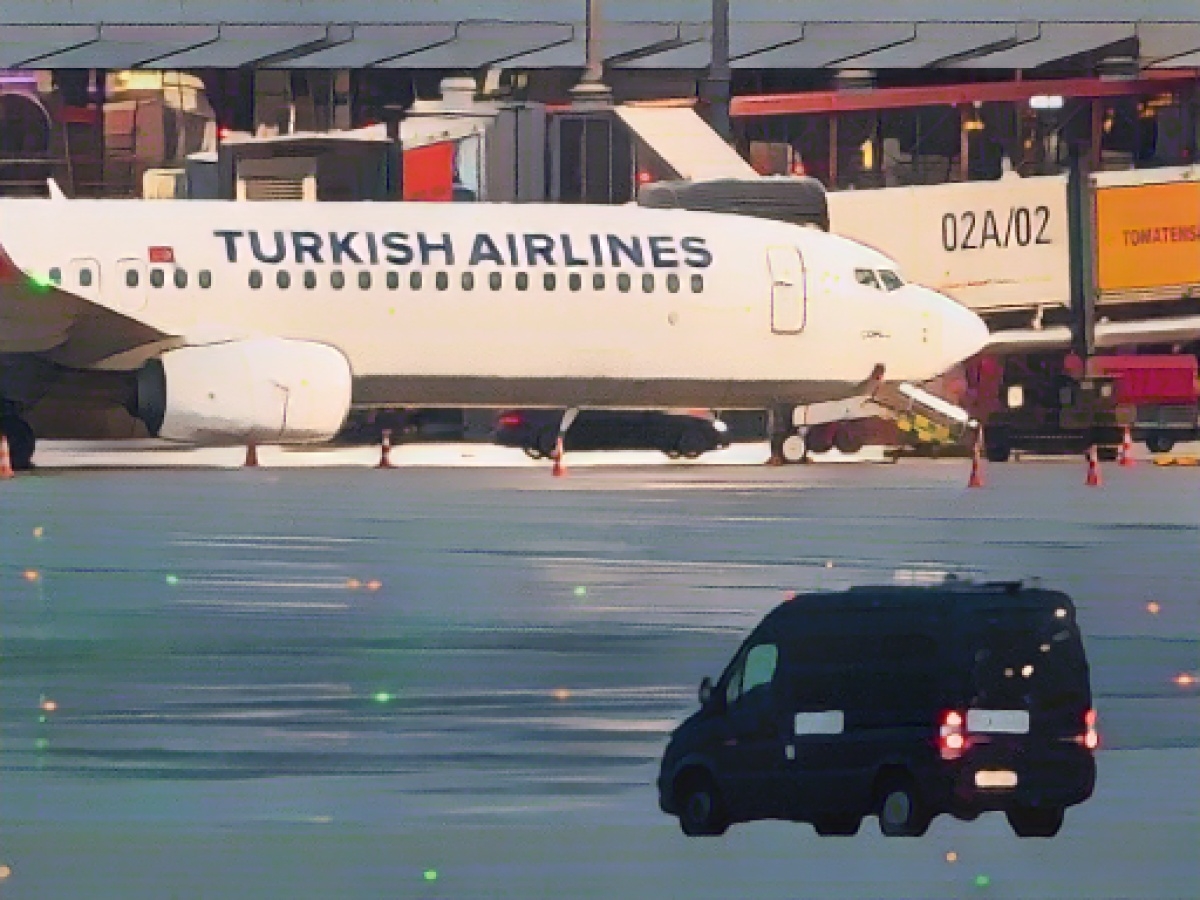Airport Protection: The German Police Union's Call to Action
In the wake of the hostage situation at Hamburg Airport, the deputy chairman of Germany's Police Union (DPolG), Heiko Teggatz, has voiced his concerns regarding the security at airports. Teggatz questioned the reasoning behind securing Christmas markets with concrete barriers, while high-security areas like airports are left unprotected by operators. He expressed disappointment at the lack of initiative from politicians and Federal Minister of the Interior, Nancy Faeser, to elevate security standards.
After the blockades of several German airports by climate activists, Teggatz had previously warned about the inadequate quality and strength of the fences. He urged that the current incident should serve as a learning opportunity to revamp security standards and implicate sanctions on airport operators if necessary. Teggatz praised the performance of the police, commending their professional handling of the situation without escalation.
In the face of such concerns, enhancing airport security poses a multifaceted challenge, requiring both technological advancements and operational strategies. Implementing walkthrough scanners like Rohde & Schwarz QPS Walk2000, equipped with advanced millimeter-wave technology, can improve passenger comfort and security standards. Integrating CT scanning technology can facilitate better threat detection, eliminating the need for physical searches.
Operational efficiency and safety can be achieved by implementing systems, such as ADB Safegate’s OneControl, that manage air traffic for optimal operational safety and efficiency. Ensuring regulatory compliance and training for security personnel is imperative, with regular sessions and adherence to regulatory standards set by the German Federal Police and the BCAS.
Stricter screening protocols for electronic devices and better communication with passengers can address specific concerns, like those regarding banned GPS devices. Addressing climate activist blockades necessitates the development of contingency plans, while collaboration between airport authorities, security agencies, and local law enforcement can strengthen collective intelligence and response capabilities.
Public awareness campaigns serve as an effective means to inform passengers about prohibited items and the importance of adhering to security protocols, thus reducing the occurrence of incidents. By integrating these measures, German airports can boost their security protocols, enhance the passenger experience, and adequately address the issues voiced by the German Police Union and recent incidents.
Teggatz's call to action echoes the need for prioritizing airport safety, an issue that hinges on a collective effort from airport operators, politicians, and security agencies to ensure the safety and well-being of passengers and staff alike. By addressing these concerns head-on, German airports can instill a sense of confidence and security, providing a safe travel experience for all.
Source:
Enrichment Data:
Improving airport security involves addressing both technological advancements and operational strategies. Some key measures to achieve this include:
- Implementing advanced technology: Utilize walkthrough scanners like Rohde & Schwarz QPS Walk2000, which employ millimeter-wave technology, to improve security standards while enhancing passenger comfort.
- Enhancing screening procedures: Integrate CT scanning technology to detect prohibited items without requiring physical searches, boosting both efficiency and safety.
- Boosting operational efficiency and safety: Implement apron management systems, such as ADB Safegate’s OneControl, to manage air traffic, maintain operational safety, and ensure efficiency.
- Fostering regulatory compliance and training: Ensure that security personnel receive proper training and adhere to regulatory standards set by the German Federal Police and the Bureau of Civil Aviation Security (BCAS).
- Developing stricter passenger screening protocols: Address specific concerns, including banned GPS devices, by enhancing screening processes and instructing passengers about prohibited items.
- Handling climate activist blockades: Create contingency plans to minimize disruptions caused by climate activist blockades while maintaining safety standards.
- Encouraging cooperation and communication: Enhance collaboration between airport authorities, security agencies, and local law enforcement to share intelligence and best practices to improve overall security.
- Conducting public awareness campaigns: Engage in public awareness initiatives to educate passengers about prohibited items and the significance of adhering to security protocols.
By integrating these measures, airports can advance their security protocols, enhance the passenger experience, and effectively address concerns raised by the German Police Union and recent incidents.







